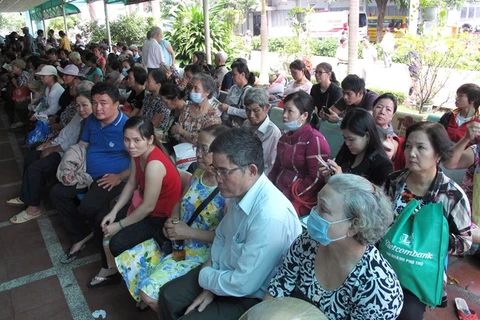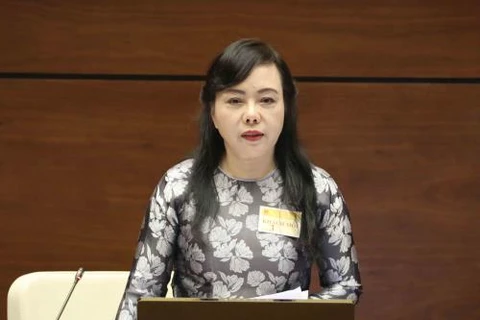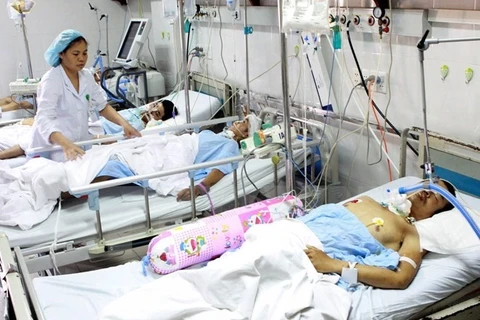Hanoi (VNA) – More resources should be channeled into grassroots and preventive medicine, which is considered as the root of the health sector, focusing on extremely disadvantaged areas, said Deputy Prime Minister Vu Duc Dam.
He made the request at a recent working session with the Health Ministry to discuss preparations for the implementation of the project on improving public health in the new situation.
According to the Deputy PM, it is necessary to reform health care policies in the direction of focusing State budget on preventive medicine while health check-up and treatment will be covered by the health insurance fund.
Grassroots medicine will be covered by both the health insurance fund and the State budget, the Deputy PM added.
At the meeting, Deputy Health Minister Nguyen Thanh Long admitted that despite achievements in establishing a widespread network of preventive medicine, controlling infectious diseases, and improving life expectancy, preventive medicine has not received the attention it deserves, as priority has until now been given to hospitals. The grassroots health care system has been ineffective in providing primary health care for the public, with around 30 percent of the population not taking periodic health checks.
The new project on improving public health in the new situation has addressed those problems, devoting resources to preventive and grassroots health care.-VNA
He made the request at a recent working session with the Health Ministry to discuss preparations for the implementation of the project on improving public health in the new situation.
According to the Deputy PM, it is necessary to reform health care policies in the direction of focusing State budget on preventive medicine while health check-up and treatment will be covered by the health insurance fund.
Grassroots medicine will be covered by both the health insurance fund and the State budget, the Deputy PM added.
At the meeting, Deputy Health Minister Nguyen Thanh Long admitted that despite achievements in establishing a widespread network of preventive medicine, controlling infectious diseases, and improving life expectancy, preventive medicine has not received the attention it deserves, as priority has until now been given to hospitals. The grassroots health care system has been ineffective in providing primary health care for the public, with around 30 percent of the population not taking periodic health checks.
The new project on improving public health in the new situation has addressed those problems, devoting resources to preventive and grassroots health care.-VNA
VNA
























